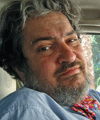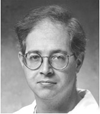Good Outcomes are the product of experience. Experience is the product of bad outcomes. That's how I learned the dictum and it's still how I repeat it.
Patient safety has been a real interest of mine - both academic and professional - for over a decade. Safety and quality are confused and conflated in the minds of physicians, academics, health care management, government regulators, and the lay press. Safety is about avoiding accidents and disasters from the routine delivery of healthcare; quality is about producing the best possible outcomes with the resources at your command. There are very few people who have substantial understanding of safety in healthcare, and there cannot be anybody who has a complete understanding.
Bad outcomes? They're statistically measurable, you may not be able to predict which patients will have them, but if you find a group large enough, you'll be able to predict the rate of these outcomes with great precision. Examples? Death, stroke, and renal failure after cardiac surgery, catheter related blood stream infections, and urosepsis from bladder catheters are a few. Quality might be about reducing the incidence or severity of post-operative nausea and vomiting, a relatively common problem. Safety is about extremely rare events - chemotherapy overdose, wrong side surgery, and such.
I'm a questions guy, not an answers guy. If you want answers, find someone else. Experience has taught me that finding and framing the question in many topics is extremely difficult, and constitutes a substantial portion of the real intellectual work. Experience and the literature - basic science and clinical(applied) - inform but almost never 'answer' questions. People who have a deep understanding of any topic appreciate this. As group, they make poor television and newspaper interviews.
Like Mitch, I highly value experience. Much of the story of medicine for the past 15 years has been about the systematic devaluation of experience. Where muddy tales of experience have been supplanted or complemented by high quality clinical studies, this has not been a problem. Where precious experience has been displaced by shoddy clinical science and 'expert' opinion....... the effect may even have be deleterious. In his post, Mitch has pointed out that the world of medicine accords too much respect to weak studies. I concur. The meaning of studies is far less evident to those with experience than those without (or with political or economic agendas). There are numerous instances where very similar studies of the same problem have produced contradictory results. How should we proceed? That would be a suitable subject for a book, or perhaps another post in the future. Suffice it to say, that practitioners fall back upon either their bias or their experience when sifting through the literature.
The centerpiece of experience is time in the trenches. There is no substitute. With that time comes both the glory of great saves and the heartbreak of failures. As practitioners and communities, we measure everything we think we know and understand by how it maps with our own experience. Everyone with substantial experience has substantial experience with bad outcomes. Compassionate practitioners think about their failures and learn everything they can from them. The learning (individual and collective) may be the only good that comes from these events. Bad outcomes have a real impact on practitioners, who can sometimes become secondary casualties of these disasters. If we expunged everyone associated with bad outcomes from medicine, there would be no one left to provide care for our patients. My claim is this: our failures of yesterday empower us to produce our successes of today.
 Mitch Keamy is an anesthesiologist in Las Vegas Nevada
Mitch Keamy is an anesthesiologist in Las Vegas Nevada
 Andy Kofke is a Professor of Neuro-anesthesiology and Critical Care at the University of Pennslvania
Andy Kofke is a Professor of Neuro-anesthesiology and Critical Care at the University of Pennslvania
 Mike O'Connor is Professor of Anesthesiology and Critical Care at the University of Chicago
Mike O'Connor is Professor of Anesthesiology and Critical Care at the University of Chicago
 Rob Dean is a cardiac anesthesiologist in Grand Rapids Michigan, with extensive experience in O.R. administration.
Rob Dean is a cardiac anesthesiologist in Grand Rapids Michigan, with extensive experience in O.R. administration.
brilliant!
Posted by: Mitch | June 08, 2024 at 09:14 AM
Mike, saftey is a culture. Quality is a process. Saftey is so much a part of the anesthesia world that you forget about the things we do everyday to protect our patients. Taping eyes, padding, tucking extremities while awake, double checking drugs etc.. All common saftey moves we do everyday as a result of experience/bad outcomes. We spend much of our professional day protecting the patients we have anesthetized.
Its what makes our specialty a natural leader in the patient saftey arena.
Posted by: Deano | June 14, 2024 at 10:39 AM